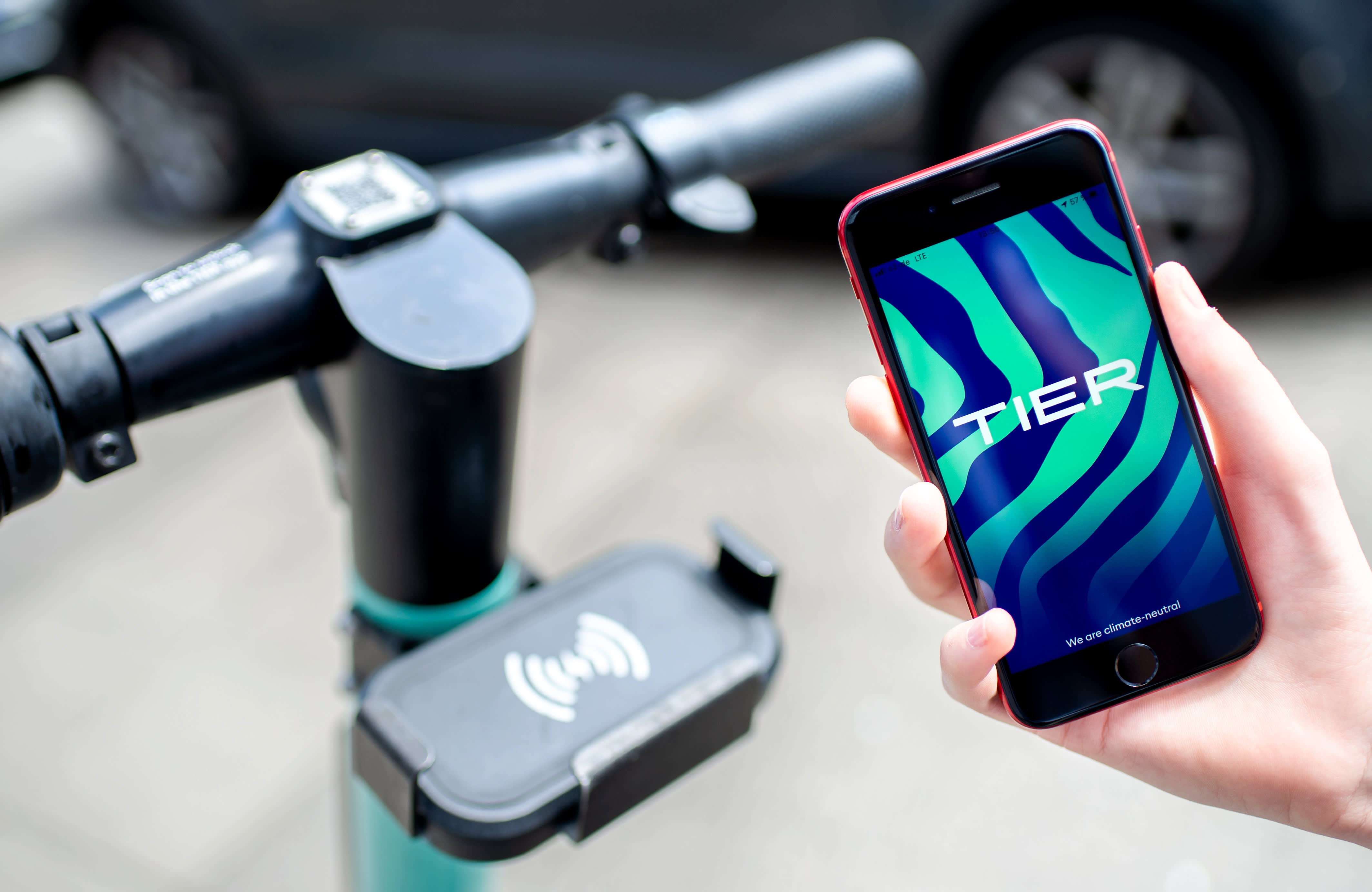A woman holds her smartphone with the app of the electric scooter sharing provider Tier Mobility next to an e-scooter to use it. Hauke-Christian Dittrich/dpa (Photo by Hauke-Christian Dittrich/picture alliance via Getty Images)
Hauke-Christian Dittrich | picture alliance via Getty Images
LONDON — German electric scooter rental firm Tier announced Tuesday that it’s raised $250 million in a funding round led by SoftBank’s second Vision Fund.
It’s the first time the Japanese tech investor has made a bet on the nascent scooter-sharing space and comes as a number of countries in Europe re-enter lockdowns to slow a resurgence in coronavirus cases. E-scooter companies were heavily hit by the first round of lockdowns, with a number of providers slashing jobs to survive.
For its part, Tier says it hasn’t had to make any layoffs related to the pandemic. A spokesperson told CNBC the firm “made one or two performance related adjustments as part of standard business practice but nothing outside of that.”
SoftBank made the investment in Tier through Vision Fund 2, a $108 billion successor to its original technology fund that gained infamy for its troubled bet on office rental service WeWork. The round also attracted backing from existing investors including Mubadala, Northzone, Goodwater Capital, White Star Capital, Novator and RTP Global.
However, Mubadala didn’t invest in Tier as part of Vision Fund 2. The Abu Dhabi sovereign wealth fund contributed to SoftBank’s first Vision Fund, but — as CNBC reported in May — it has been hesitant to back the new fund.
According to the Financial Times, which first reported the news, Tier is now valued at just below $1 billion. That means it’s close to securing a so-called “unicorn” valuation and, according to the FT, makes it the second-most valuable e-scooter company after Bird — overtaking Lime.
Profitability
Some e-scooter start-ups claim they saw a swift recovery in demand over the summer as economies reopened. Many have been racing to take part in trials in the U.K. as the country explores legalizing e-scooters.
But there are lingering fears over the financial sustainability of the sector, particularly as a number of European countries re-enter lockdowns and winter approaches. Nonetheless, Tier says it managed to reach profitability for the first time this year.
Tier has been profitable since June, the company’s CEO Lawrence Leuschner told CNBC in a recent interview. “We will be very close to full profitability this year,” he added.
Tier said it would use the fresh cash to expand in Europe and install thousands of charging stations in various cities to power its vehicles. The company, which in May launched its own electric moped-sharing service, said it’s also looking to secure additional debt financing to rollout more vehicles.
“Micro-mobility fills a large gap left by traditional urban car usage and presents a viable alternative to legacy transit systems,” said Yanni Pipilis, managing partner at SoftBank Investment Advisers. “Tier has a proven track record in establishing long standing partnerships with cities and regulators, combined with a technology-led approach to develop leading customer propositions.”
